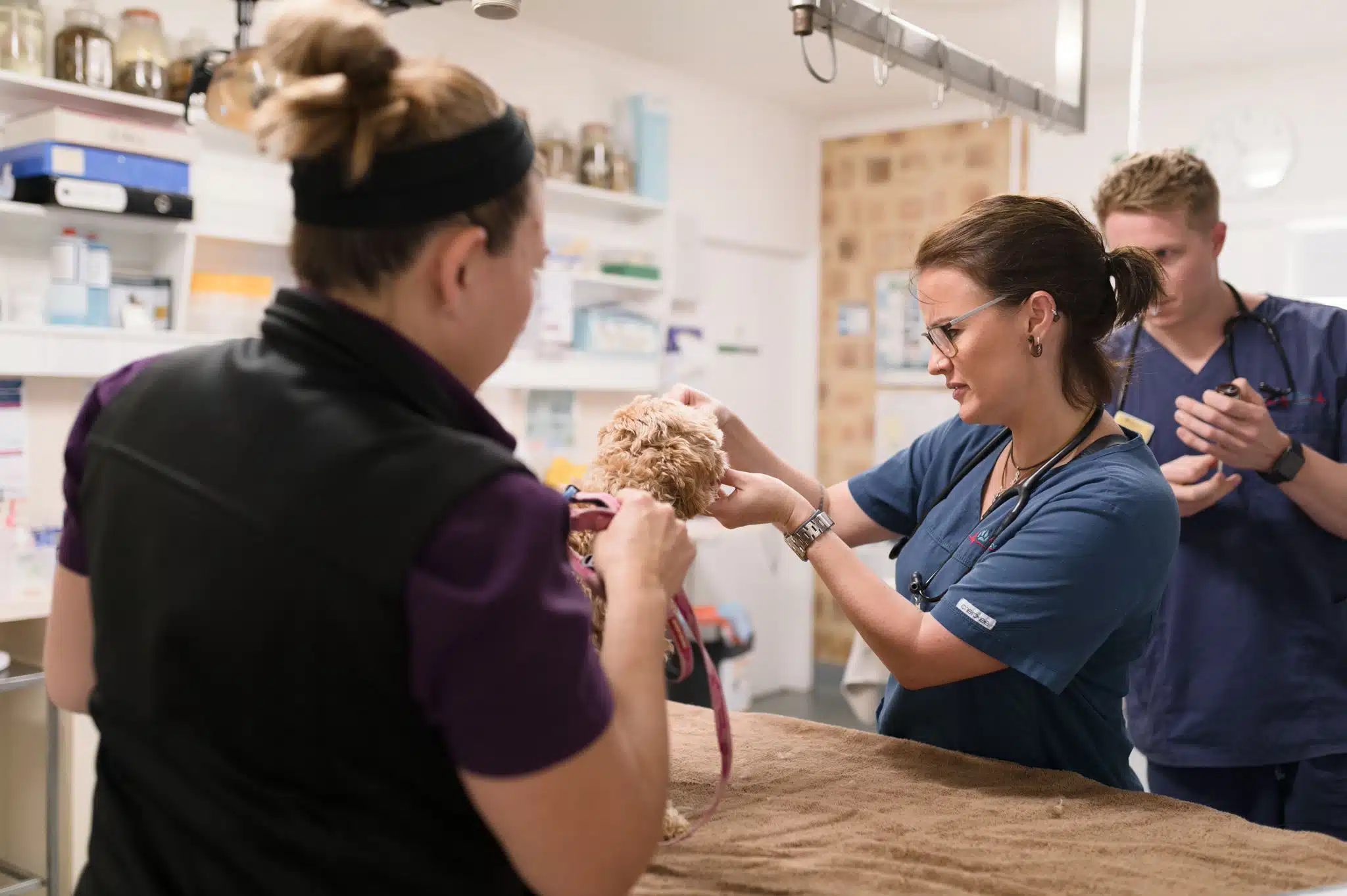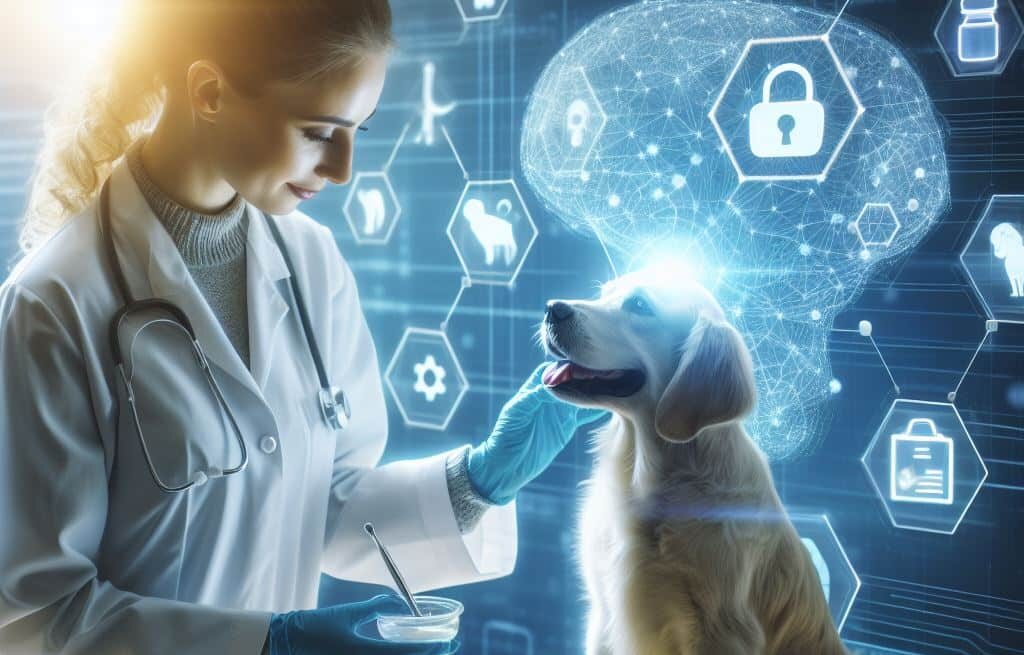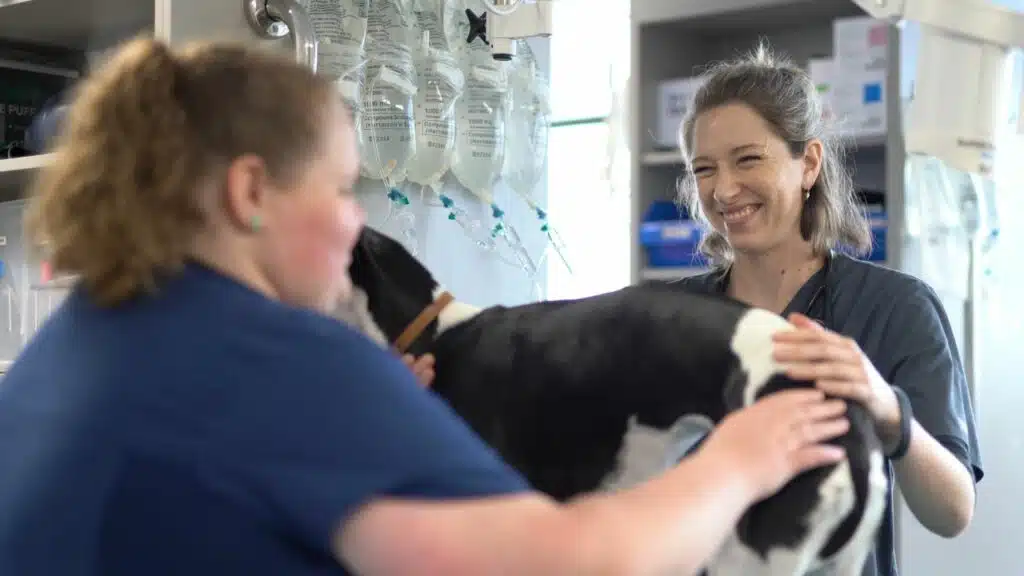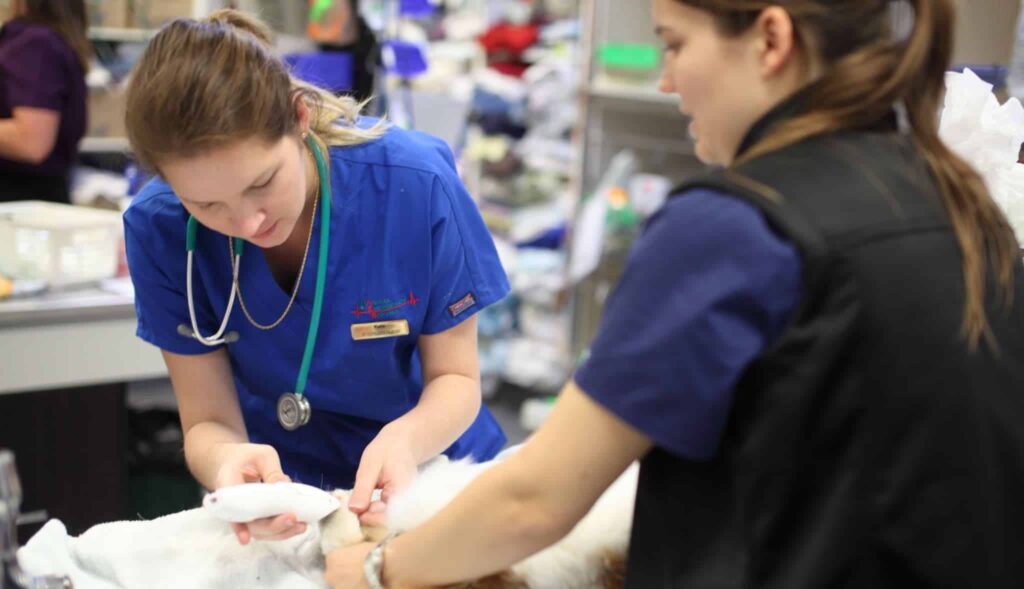The integration of Artificial Intelligence (AI) into various sectors has been nothing short of revolutionary, and the field of veterinary medicine stands as a prime beneficiary of these advances. The application of AI in veterinary services is ushering in a new era of enhanced diagnostics, precise treatment plans, and improved operational efficiency, promising a future where animal healthcare is more accurate, personalised, and accessible.
Here at AEA, we are also diving into the world of AI and trying to find out what this brave new world means for us Emergency and Critical Care vet professionals. Join us as we take a closer look at just some of the benefits of incorporating AI in veterinary services your team offers.
Enhancements in Diagnostic Accuracy
AI’s role in veterinary diagnostics is proving to be a game-changer – not just in the lab. Utilising vast datasets, AI algorithms are now assisting veterinarians in pinpointing diseases and conditions with remarkable accuracy.
These algorithms delve into medical records, laboratory tests, and imaging studies, identifying patterns that can indicate diseases like cancer or neurological disorders. AI tools are particularly adept at analysing X-rays, MRIs, and ultrasounds, spotting nuances that may elude human detection, thus elevating the precision of diagnostic efforts.

Personalised Treatment Strategies
The advent of AI in veterinary medicine is paving the way for more tailored treatment approaches. By examining the unique medical profiles of animals, including their genetic makeup and response to previous treatments, AI can guide veterinarians towards the most effective interventions. This not only enhances outcomes for the patients, but also minimises the guesswork which may occasionally be associated with veterinary treatments, enabling a more targeted and efficient therapeutic process.
Advancements in Telemedicine and Remote Care
Telemedicine, bolstered by AI, is expanding the reach of veterinary care, allowing for remote monitoring and consultation. AI-equipped devices can track an animal’s vitals, activities, and behaviours, providing veterinarians with real-time data to assess and address health issues promptly from afar. AI also aids in triaging telemedicine cases, helping to determine the urgency of in-person examinations and ensuring timely care for animals in need.

Streamlining Clinic Operations
Beyond clinical applications, AI is revolutionising the administrative aspects of veterinary practices. From AI-driven chatbots that manage appointments and field inquiries to systems that optimise inventory and automate billing, the technology is streamlining operations, enhancing efficiency, and improving the client experience.
Accelerating Veterinary Research
In the realm of research, AI is a powerful ally, facilitating the analysis of extensive genomic datasets to uncover disease patterns and genetic markers. This accelerates the development of targeted therapies and improves breeding practices. Additionally, AI’s role in drug discovery is invaluable, speeding the identification and testing of new treatments.

Navigating Challenges and Ethical Issues
Despite its vast potential, the deployment of AI in veterinary medicine comes with its set of challenges and ethical dilemmas. Issues of privacy, data security, and algorithmic bias require careful consideration and management. Moreover, while AI can augment the capabilities of veterinary professionals, it is essential to balance technological reliance with the preservation of human expertise and veterinary jobs in the sector. As advanced as AI will eventually become, there will be no replacement for a hands-on clinical exam.
Looking Ahead to the Future of AI in Veterinary Services
The impact of AI on veterinary services is only beginning to unfold, with significant room for growth and innovation. As technology evolves, so will the capabilities for diagnosis, treatment, and care, heralding a future where veterinary medicine is more effective, efficient, and accessible. Collaboration among veterinary professionals, AI specialists, and tech developers will be crucial in realising the full potential of AI, ensuring its ethical and responsible application in animal healthcare.
In summary, AI stands poised to transform veterinary medicine, offering enhanced diagnostic tools, personalised treatment options, and streamlined operations. While challenges remain, the prospects for AI in improving animal health and wellbeing are immense, marking a promising new chapter in veterinary care.




